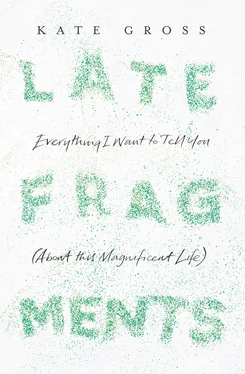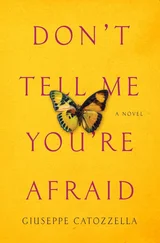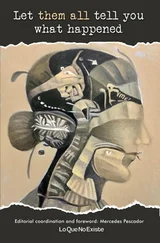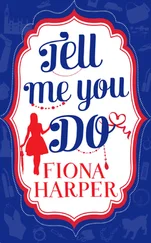My brain was a problem too. There was something profoundly uncool about being clever, at least at my school. I was one of those children who are desperate to please teachers, who work very hard and do very well . I got enough As to bump up the school’s shonky results, had enough gumption to ask interesting questions in class, but not enough attitude to be disruptive. It didn’t help that I had no cool hobbies. I never really got into pop music; books were my thing, which was marginally better than playing the trumpet, but nonetheless not conducive to being kissed. So, as time went on, I started going to ever-greater lengths to hide my nerdish and teacher-pleasing tendencies. I made a show of falling asleep in lessons, so that it looked as if I had the kind of social life I coveted. I skipped physics, because poor old Mr Whale didn’t really notice whether we were there or not. I didn’t stop getting good results – diligence prevailed, and I pored over my books outside school, where I could indulge my owlish obsessions under the safe wings of the wonderful ladies of literature my mum had wisely chosen as her friends (especially my godmother Louise and my friend’s mum Susie, both English teachers). But at school, I stopped being an interested, engaged student. I stopped being proud of what went on in my head. And worst of all, like Rosie Lee, I cast aside the friendships I had with people who talked to me about books in favour of people who talked to me about boys. The girls with whom I had laboured over a papier-mâché game of A Midsummer Night’s Dream , the gang with whom I had created the fashion house NiftWear (and its lucrative sideline of FIMO earrings) – I ditched them overnight.
There is something profoundly sad about not being able to show people who you really are, and about having friends who don’t reflect the inside of you. Of course, every one of us is lots of people over the course of our lives. We try on different selves like outfits for different occasions, and wear different friendships for different outings. There are friendships which only revolve around doing stuff together. Friendships which, if you held a mirror up to them, would reflect the people we want to be at a certain moment, not the people we are inside. Some of that exploration is fun. Some of it is painful. But these disparate selves are occasionally only connected to the real us by a frail thread, and never more so than during the grub years.
It’s lucky, really, that I didn’t die in 1992. I don’t think people would have had the happiest of memories of me, especially my long-suffering family, who had to put up with the smell of martyred saint wafting around our house (I pretended it was weed, but actually it was mainly joss sticks and the smell of my pain ). There would have been some hand-wringing about my dying so young, but as a teenage grub I hadn’t done much for the world. Something happened, of course, to change things. Call it evolution. Or maybe just growing up. Anyway, I escaped my girls-only torment and went to a different school. Things were better there. I didn’t mind wearing my brains on my sleeve so much. Somehow I was accepted into the Cooliverse, even though my wardrobe remained ludicrous. (I must have been the only teenage raver who wore the clothes of a middle-aged woman. Why, when I actually had the body for it, did I not wear actual hot-off-the-streets fashion?)
And then, of course, university, where for the first time things were defined differently. The metric for cool was no longer the number of boy-racers you could kiss, the amount of cider you could drink or whether you had the moves to dance on podiums. Instead, people seemed proud of who they were inside their heads. I met girls who had posters of William Shakespeare on their bedroom walls back home, and were proud of it. Girls who knew who Kant was, even if they pronounced his name cunt (ah, the dangers of being an autodidact). Here it was OK to try hard. It was OK to want to impress the grown-ups. These things contributed to, rather than depleted, your cool status. This was a huge relief for me, though I was overawed too. Who were all these confident young people who were both kissable and clever? What rare alchemy had created them? There was an alarming correlation between private schooling and those who emanated this glow. We products of the state school system seemed chippier, more aggressive, less polished, perhaps less comfortable with ourselves. But in any case, here was a place where I could hatch out in safety. With the friction of trying to be something I wasn’t removed, and the waves of adolescent hormones calming down, I started to settle into myself.
I was not the only grub who hatched out at around this time. I think of our university bedrooms as a series of little cocoons – messy, sweaty little pits of essay-writing, cigarettes and drunken liaisons from which butterflies eventually emerged. We entered our hatchery in different states; not everyone has their ghoulish period between thirteen and sixteen. Some have it earlier, some much later. And different grubs had different coping strategies. Two I know very well spent their teenage years in hock to a particular brand of Christian evangelism. Now, I have nothing against evangelism (that’s not quite true, but let’s not go into that now), but religion for them was a mechanism for entering some kind of Cooliverse, since they were excluded from popularity by their nasty little classmates at school. It was a place of certainty and security, while at home a cold war of marital decline reigned. So instead of hanging around their local park drinking White Lightning and lusting after boys doused in cheap aftershave, they directed their unrequited love towards Jesus and his ministers here on earth, handsome young men who played the guitar and whipped up devotion in their female followers. And then they entered the hatchery, there was glasnost (or bust) at home, and the tambourines and guitars no longer seemed quite so necessary.
Another grub arrived with his lank brown hair in curtains, a greasy face and large round spectacles, an oversized Harry Potter without a wand, outwardly full of bonhomie and jollity, inwardly wrestling with whether he wanted to kiss boys or girls. Eventually he decided that boys were his thing, but let’s not pretend the hatchling period was easy for him. It was long, messy, and largely private, except for one memorable phone message all his friends received about 4 o’clock one night: ‘Ecstasy! Little ginger man! I just want to kiss all the boys. And you! And you!’ After that great revelation, things got better.
Some grubs arrived at university appearing to be butterflies already. Taken in at first by the cool girl who lived below me, with her leopardskin coat, London accent and directional hairstyle, I didn’t realise until much later that this was her armour – underneath she was every bit as much of an uncertain, pained little thing as I was; she had just developed better ways of camouflaging herself than me. You had to in the big city, I guess. Gradually, over a seemingly endless supply of Jacob’s crackers, cheese and Marlboro Lights, she showed me what was under her London armour. A brother disabled from birth; a wealth of anxieties (surprisingly not related to her directional haircut); a little disability here and there of her own. Even through her cocoon I could see that she would end up being my best woman.
I count my time at university as precious not just because it is where I hatched, but because it is where I made the friendships that have accompanied me ever since. I love the company of men. Especially Billy. But for me there is something special about female friendship, and it was at university that I began to meet the women who have really mattered to me. I have photos of us back then with wide eyes, big hair and a series of questionable cocktail dresses. We sat around smoking fags, plotting our futures, confident that the world would unfold its riches before us. Like the friends described by Wallace Stegner in Crossing to Safety (which is, incidentally, one of the finest novels about friendship I’ve come across), we ‘cut the future into happy stars and circles like little girls making Christmas cookies’.
Читать дальше





![Ally Carter - [Gallagher Girls 01] I'd Tell You I Love You But Then I'd Have to Kill You](/books/262179/ally-carter-gallagher-girls-01-i-d-tell-you-i-lo-thumb.webp)






